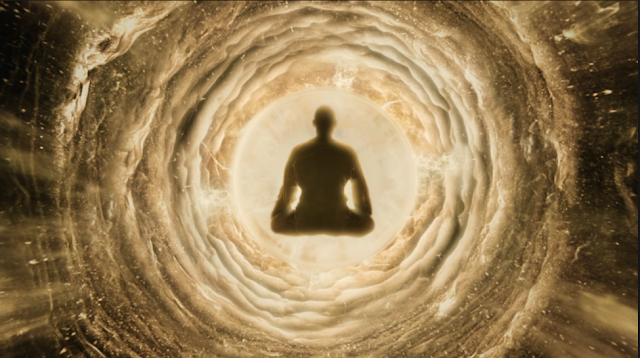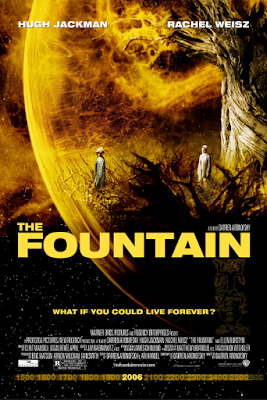Ancient Traditional Japanese Music - Mountain Pass
 |
| Additional Images |
Ancient Rhythms
Hot yellow clouds cry
But cannot see looking down
Earth awaits her death.
Scattered blossoms flow
Along dying streams choked
Living waters unsung.
Seeing, we see not
Not earth, not others, blinded souls
Once ancient, forgot.
Mouldering petals
Like forgotten joys, rotting
Fled creation's memory.
Joyless hearts beating
Singing lands of summer blooms
Echoing fey lament.
Remembering home
Nourishing Edens, now barren
Timeless paths flowing.
Embracing oneness
Fellowships bound land to soul
Divine grace gifts all.
R.E. Slater
September 18, 2019
*A traditional Japanese haiku is a three-line poem with seventeen syllables,
written in a 5/7/5 syllable count. Often focusing on images from nature, haiku
emphasizes simplicity, intensity, and directness of expression with no rhyming
@copyright R.E. Slater Publications
all rights reserved
Notes to Haiku
September 18, 2019
*A traditional Japanese haiku is a three-line poem with seventeen syllables,
written in a 5/7/5 syllable count. Often focusing on images from nature, haiku
emphasizes simplicity, intensity, and directness of expression with no rhyming
@copyright R.E. Slater Publications
all rights reserved
Notes to Haiku
Having come across a foreign concert segment on the Internet I became curious as to why it was so moving to the well dressed audience gasping and swooning during its emotional performance. It seems that the song being sung by the young lady in white was lamenting the losses of childhood and of that of the ancient Japanese culture having forgotten its meaning and identity when absorbing Western practices, capitalism, and consequentially separation from the cradling arms of the earth (sic, earth spirits of nature) in its mimicry. The song, like the film it originated from, layers its hopes upon a succeeding generations which might remember the old ways in finding a way back to what once was treasured in its ancient traditions - cultural vitality, fellowship, earth care, and the social identity which came from these traditions. Themes universal to the ancient human breast itself.
Modern Western critics like Wendell Berry, Aldo Leopold, and a host of others ranging from poets to theologs have echoed these same sentiments in observing how industrialized Western progress has created great loss to humanity's inherent cardinal values imaged upon our souls by the divine granting the life-giving qualities of identity and meaning when in fellowship with the earth and one another. Specifically, both concert, song, and film, recall the primal longing of creation as an ancient longing we have too easily dismissed as an insignificant thing when pompously disrupting or destroying both our own past as well as the pasts of other native American cultures, aboriginal cultures, and non-European civilizations by Westernizing standards having become deaf-and-blind to the accumulated wisdoms of the ancients over the centuries in succeeding echoes of enforced religious and doctrinnaire superiority.
Consequently, in this present day we must now repair the renewing cycles of divine life by listening to, and learning from, one another as from the earth and Spirit themselves, each once heard in the sublime symphonies of our distant souls now lost within the graves we have wantonly dug as memorials to our sins, greed, and follies. This loss of divine rhythm must somehow be recovered from what was carelessly destroyed and now deemed worthless in our pride and short-sightedness. Soul qualities we are only now realising granting life, hope, purpose, and fellowship with the earth and with one another. And it is in this divine revelatory light we must hear again those ancient lyrics to restore, renew, steward, and cultivate earth's primal Edens which had once nurtured both creation and the human spirit in practices of wisdom, selflessness, silence, love, and community.
Lyrics: The Name of Life
The whiteness of the clouds left behind by a plane
Draw a line across the blue sky
Always, no matter to where, always continuing
As if it knew tomorrow.
In my chest I breathed in a shallow breath
I remember the breeze that blew on my hot cheek.
I remember the breeze that blew on my hot cheek.
The hands and feet which are bound before the future
Are freed by a quiet voice
So nostalgic that I want to scream out, is
One life, the midsummer light
At your shoulder, swaying, the sunbeams streaming through the leaves.
Are freed by a quiet voice
So nostalgic that I want to scream out, is
One life, the midsummer light
At your shoulder, swaying, the sunbeams streaming through the leaves.
The white ball at rest
The petals which have been scattered by the wind
The invisible river which carries both
Singing while flowing on.
The petals which have been scattered by the wind
The invisible river which carries both
Singing while flowing on.
Secrets and lies and joy
Are the children of the gods who created this universe.
Are the children of the gods who created this universe.
The heart which is bound before the future
Someday, will remember its name
So loved that I want to scream out, is
One life, the place to return to
At my fingertips, the summer day which doesn't disappear.
Someday, will remember its name
So loved that I want to scream out, is
One life, the place to return to
At my fingertips, the summer day which doesn't disappear.
Inochi no Namae (The Name of Life)
Joe Hisaishi in Budokan - Studio Ghibli 25 Years Concert
Futatabi [Reprise] (Spirited Away)
Futatabi [Reprise] (Spirited Away)
Joe Hisaishi in Budokan - Studio Ghibli 25 Years Concert
Spirited Away
Spirited Away (Japanese: 千と千尋の神隠し Hepburn: Sen to Chihiro no Kamikakushi, "Sen and Chihiro's Spiriting Away") is a 2001 Japanese animated coming-of-age fantasy film. It was written and directed by Hayao Miyazaki, animated by Studio Ghibli for Tokuma Shoten, Nippon Television Network, Dentsu, Buena Vista Home Entertainment, Tohokushinsha Film and Mitsubishi and distributed by Toho. The film stars Rumi Hiiragi, Miyu Irino, Mari Natsuki, Takeshi Naito, Yasuko Sawaguchi, Tsunehiko Kamijō, Takehiko Ono, and Bunta Sugawara. Spirited Away tells the story of Chihiro Ogino (Hiiragi), a moody 10-year-old girl who, while moving to a new neighbourhood, enters the world of Kami (spirits) of Japanese Shinto folklore. After her parents are mutated into pigs by the witch Yubaba (Natsuki), Chihiro takes a job working in Yubaba's bathhouse to find a way to free herself and her parents and return to the human world.
Miyazaki wrote the script after he decided the film would be based on the 10-year-old daughter of his friend, associate producer Seiji Okuda, who came to visit his house each summer. At the time, Miyazaki was developing two personal projects, but they were rejected. With a budget of 19 million US dollars, production of Spirited Away began in 2000. Pixar director John Lasseter, who is a fan and friend of Miyazaki, convinced Walt Disney Pictures to buy the film's North American distribution rights, and served as the executive producer of its English-dubbed version Lasseter hired Kirk Wise as director and Donald W. Ernst as producer of the adaptation. Screenwriters Cindy Davis Hewitt and Donald H. Hewitt wrote the English-language dialogue to match the characters' original Japanese-language lip movements.
The film was originally released in Japan on 20 July 2001 by distributor Toho. It became the most successful film in Japanese history, grossing over $361 million worldwide.[a] The film overtook Titanic (the top-grossing film worldwide at the time) in the Japanese box office to become the highest-grossing film in Japanese history with a total of ¥30.8 billion. Spirited Away received universal acclaim and is frequently ranked among the greatest animated films ever made. It won the Academy Award for Best Animated Feature at the 75th Academy Awards, making it the first (and so far only) hand-drawn and non-English-language animated film to win that award. It was the co-recipient of the Golden Bear at the 2002 Berlin International Film Festival (shared with Bloody Sunday) and is in the top 10 on the British Film Institute's list of "Top 50 films for children up to the age of 14".
In 2016, it was voted the fourth-best film of the 21st century as picked by 177 film critics from around the world, making it the highest-ranking animated film on the list. It was also named the second "Best Film of the 21st Century So Far" in 2017 by the New York Times.
Spirited Away Trailer
Plot
Ten-year-old Chihiro Ogino and her parents are traveling to their new home when her father takes a shortcut, leading them to what appears to be an abandoned amusement park that Chihiro's father insists on exploring. They find a seemingly empty restaurant stall stocked with food, which Chihiro's parents immediately begin to eat. While exploring further, Chihiro finds an exquisite bathhouse and meets a boy named Haku, who warns her to return across the riverbed before sunset. However, Chihiro discovers too late that her parents have metamorphosed into pigs, and she is unable to cross the now-flooded river.
Haku finds Chihiro and has her ask for a job from the bathhouse's boiler-man, Kamaji, a yōkai commanding the susuwatari. Kamaji refuses to hire her and asks worker Lin to send Chihiro to Yubaba, the witch who runs the bathhouse. Yubaba tries to frighten Chihiro away, but she persists, so Yubaba gives Chihiro a contract to work for her. Yubaba takes away her name and renames her Sen (千). While visiting her parents' pigpen, Haku gives Sen a goodbye card she had with her, and Sen realizes that she had already forgotten her real name. Haku warns her that Yubaba controls people by taking their names, and that if she forgets hers like he has forgotten his, she will not be able to leave the spirit world.
Sen faces discrimination from the other workers because she is still a human and not a spirit; only Haku and Lin show sympathy for her. While working, she invites a silent creature named No-Face inside, believing him to be a customer. A "stink spirit" arrives as Sen's first customer, and she discovers he is the spirit of a polluted river. In gratitude for cleaning him, he gives Sen a magic emetic dumpling. Meanwhile, No-Face imitates the gold left behind by the stink spirit and tempts a worker with gold, then swallows him. He demands food and begins tipping extensively. He swallows two more workers when they interfere with his conversation with Sen.
Sen sees paper Shikigami attacking a Japanese dragon and recognizes the dragon as Haku metamorphosed. When a grievously injured Haku crashes into Yubaba's penthouse, Sen follows him upstairs. A shikigami that stowed away on her back shapeshifts into Zeniba, Yubaba's twin sister. She mutates Yubaba's son, Boh, into a mouse, creates a decoy Boh, and mutates Yubaba's harpy into a tiny, flylike bird. Zeniba tells Sen that Haku has stolen a magic golden seal from her, and warns Sen that it carries a deadly curse. Haku attacks the shikigami, which eliminates Zeniba's hologram. He falls into the boiler room with Sen, Boh, and the harpy on his back, where Sen feeds him part of the dumpling she had intended to give her parents, causing him to vomit both the seal and a black slug, which Sen crushes with her foot.
With Haku unconscious, Sen resolves to return the seal and apologize to Zeniba. Sen confronts No-Face, who is now massive, and feeds him the rest of the dumpling. No-Face follows Sen out of the bathhouse, steadily regurgitating everything he has eaten. Sen, No-Face, Boh, and the harpy travel to see Zeniba with train tickets given to her by Kamaji. Yubaba orders that Sen's parents be slaughtered, but Haku reveals that Boh is missing and offers to retrieve him if Yubaba releases Sen and her parents. Yubaba agrees, but only if Sen can pass a final test.
Sen, No-Face, Boh, and the harpy meet with Zeniba, who reveals that Sen's love for Haku broke her curse and that Yubaba used the black slug to control Haku. Haku appears at Zeniba's home in his dragon form and flies Sen, Boh, and the harpy to the bathhouse. No-Face decides to stay behind and become Zeniba's spinner. In mid-flight, Sen recalls falling years ago into the Kohaku River and being washed safely ashore, correctly guessing Haku's real identity as the spirit of the Kohaku River. When they arrive at the bathhouse, Yubaba forces Sen to identify her parents from among a group of pigs in order to break their curse. After Sen answers correctly that none of the pigs are her parents, her contract combusts and she is given back her real name. Haku takes her to the now-dry riverbed and vows to meet her again. Chihiro crosses the riverbed to her restored parents, who do not remember anything after eating at the restaurant stall. They walk back to their car, which is now covered in dust and leaves. Before getting in, Chihiro is shown to still be wearing the hairband No-Face spun for her at Zeniba's home.
Hidden Meaning in Spirited Away (Miyazaki)
– Earthling Cinema
Themes
The themes of the film are heavily influenced by Japanese Shinto-Buddhist folklore. The central location of the film is a Japanese bathhouse where a great variety of Japanese folklore creatures, including kami, come to bathe. Miyazaki cites the solstice rituals when villagers call forth their local kami and invite them into their baths.
Chihiro also encounters kami of animals and plants. Miyazaki says of this:
"In my grandparents' time, it was believed that kami existed everywhere – in trees, rivers, insects, wells, anything. My generation does not believe this, but I like the idea that we should all treasure everything because spirits might exist there, and we should treasure everything because there is a kind of life to everything."
The film has been compared to Lewis Carroll's Alice's Adventures in Wonderland as the stories have some elements in common such as being set in a fantasy world, the plots including a disturbance in logic and stability, and there being motifs such as food having metamorphic qualities; though developments and themes are not shared. Among other stories compared to Spirited Away, The Wonderful Wizard of Oz is seen to be more closely linked thematically.
The major themes of Spirited Away center on the protagonist Chihiro and her liminal journey through the realm of spirits. The archetypal entrance into another world demarcates Chihiro's status as one somewhere between child and adult. Chihiro also stands outside societal boundaries in the supernatural setting. The use of the word kamikakushi (literally "hidden by gods") within the Japanese title, and its associated folklore, reinforces this liminal passage:
"Kamikakushi is a verdict of 'social death' in this world, and coming
back to this world from Kamikakushi meant 'social resurrection.'"
Yubaba has many similarities to The Coachman from Pinocchio, in the sense that she mutates humans into pigs in a similar way that the boys of Pleasure Island were mutated into donkeys. Upon gaining employment at the bathhouse, Yubaba's seizure of Chihiro's true name symbolically kills the child, who must then assume adulthood. She then undergoes a rite of passage according to the monomyth format; to recover continuity with her past, Chihiro must create a new identity.
Along with its function within the ostensible coming of age theme, Yubaba's act of taking Chihiro's name and replacing it with Sen (an alternate reading of "chi", the first character in Chihiro's name – lit. "one thousand"), is symbolic of capitalism's single-minded concern with value, reflecting the film's exploration of capitalism and its effect on traditional Japanese culture.
Yubaba is stylistically unique within the bathhouse, wearing a Western dress and living among European décor and furnishings, in contrast with the minimalist Japanese style of her employee's quarters, representing the Western capitalist influence over Japan in its Meiji period and beyond. The Meiji design of the abandoned theme park is the setting for Chihiro's parents' metamorphosis - the family arrives in an imported Audi car and the father wears a European-styled polo shirt, reassuring Chihiro that he has "credit cards and cash", before their morphing into literal consumerist pigs.
Spirited Away contains critical commentary on modern Japanese society concerning generational conflicts and environmental issues. Chihiro has been seen as a representation of the shōjo, whose roles and ideology had changed dramatically since post-war Japan.
Miyazaki has stated:
Chihiro’s parents turning into pigs symbolizes how some humans become greedy. At the very moment Chihiro says there is something odd about this town, her parents turn into pigs. There were people that "turned into pigs" during Japan’s bubble economy (consumer society) of the 1980s, and these people still haven’t realized they’ve become pigs. Once someone becomes a pig, they don’t return to being human but instead gradually start to have the "body and soul of a pig". These people are the ones saying, "We are in a recession and don’t have enough to eat." This doesn’t just apply to the fantasy world. Perhaps this isn’t a coincidence and the food is actually (an analogy for) "a trap to catch lost humans."
Just as Chihiro seeks her past identity, Japan, in its anxiety over the economic downturn occurring during the release of the film in 2001, sought to reconnect to past values. In an interview, Miyazaki has commented on this nostalgic element for an old Japan.
However, the bathhouse of the spirits cannot be seen as a place free of ambiguity and darkness. Many of the employees are rude to Chihiro because she is human, and corruption is ever-present; it is a place of excess and greed, as depicted in the initial appearance of the No-Face. In stark contrast to the simplicity of Chihiro's journey and transformation is the constantly chaotic carnival in the background.
There are two major instances of allusions to environmental issues within the movie. The first is seen when Chihiro is dealing with the "stink spirit." The stink spirit was actually a river spirit, but it was so corrupted with filth that one couldn't tell what it was at first glance. It only became clean again when Chihiro pulled out a huge amount of trash, including car tires, garbage, and a bicycle. This alludes to human pollution of the environment, and how people can carelessly toss away things without thinking of the consequences and of where the trash will go. The second allusion is seen in Haku himself. Haku does not remember his name and lost his past, which is why he is stuck at the bathhouse. Eventually, Chihiro remembers that he used to be the spirit of the Kohaku River, which was destroyed and replaced with apartments. Because of humans' need for development, they destroyed a part of nature, causing Haku to lose his home and identity. This can be compared to deforestation and desertification; humans tear down nature, cause imbalance in the ecosystem, and demolish animals' homes to satisfy their want for more space (housing, malls, stores, etc.) but don't think about how it can affect other living things.
Additional themes are expressed through the No-Face, who reflects the characters which surround him, learning by example and taking the traits of whomever he consumes. This nature results in No-Face's monstrous rampage through the bathhouse. After Chihiro saves No-Face with the emetic dumpling, he becomes timid once more. At the end of the film, Zeniba decides to take care of No-Face so he can develop without the negative influence of the bathhouse.
The Films of Studio Ghibli Trailer
Joe Hisaishi
From Wikipedia, the free encyclopedia
From Wikipedia, the free encyclopedia
Joe Hisaishi
| |
|---|---|

Hisaishi in Paris in 2011
| |
| Background information | |
| Native name |
久石 譲
|
| Birth name | Mamoru Fujisawa |
| Born | December 6, 1950 Nakano, Nagano, Japan |
| Genres | |
| Occupation(s) |
|
| Instruments | |
| Years active | 1974–present |
Mamoru Fujisawa (藤澤 守 Fujisawa Mamoru, born December 6, 1950), known professionally as Joe Hisaishi (久石 譲 Hisaishi Jō), is a Japanese composer and musical director known for over 100 film scores and solo albums dating back to 1981. Hisaishi is also known for his piano scores.
While possessing a stylistically distinct sound, Hisaishi's music has been known to explore and incorporate different genres, including minimalist, experimental electronic, European classical, and Japanese classical. Lesser known are the other musical roles he plays; he is also a typesetter, author, arranger, and conductor.
He has been associated with animator Hayao Miyazaki since 1984, having composed scores for all but one of his films. He is also recognized for the soundtracks he has provided for filmmaker 'Beat' Takeshi Kitano, including A Scene at the Sea (1991), Sonatine (1993), Kids Return (1996), Hana-bi (1997), Kikujiro (1999), and Dolls (2002), as well for the video game series Ni no Kuni. He was a student of legendary anime composer Takeo Watanabe.











